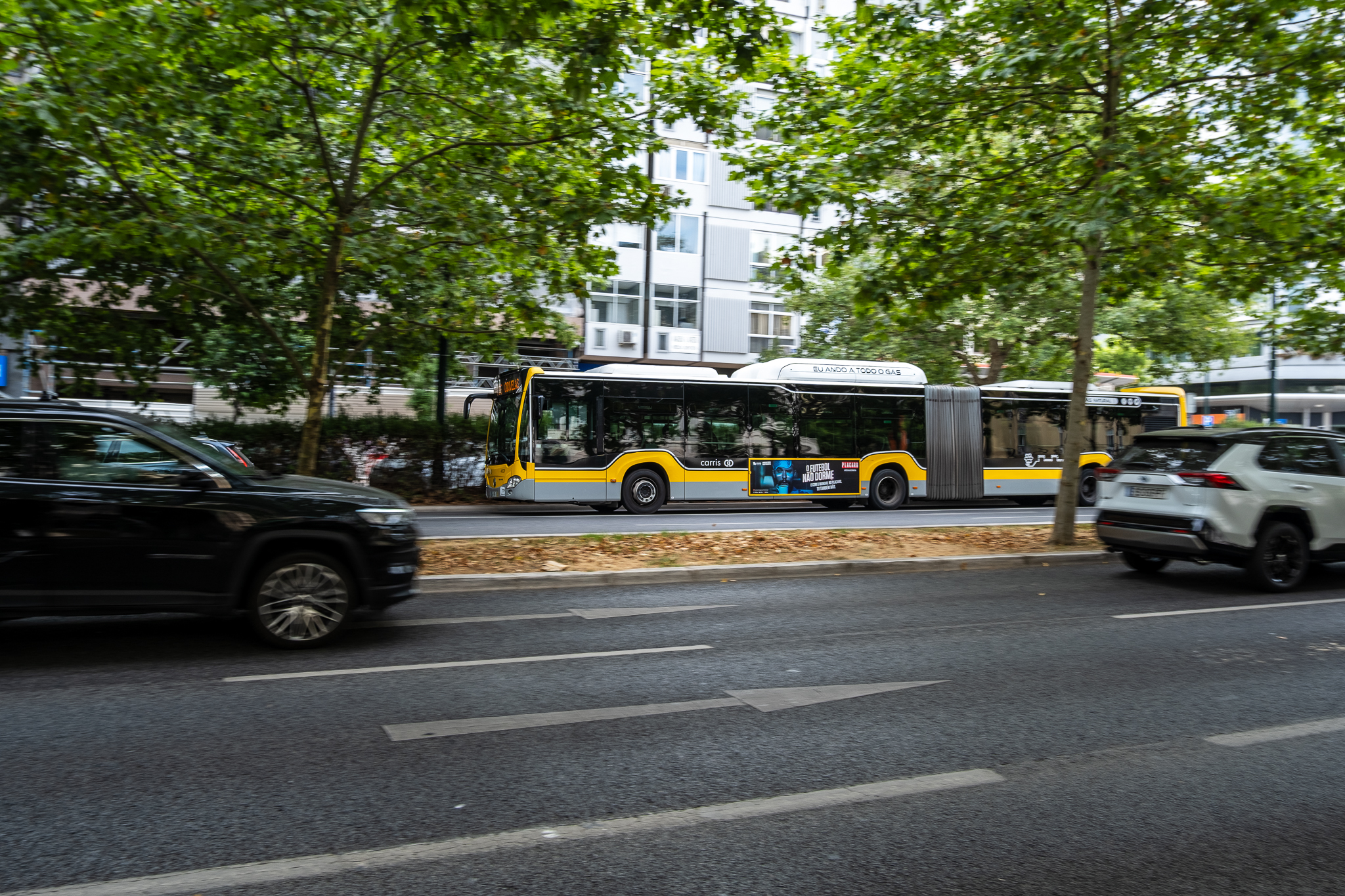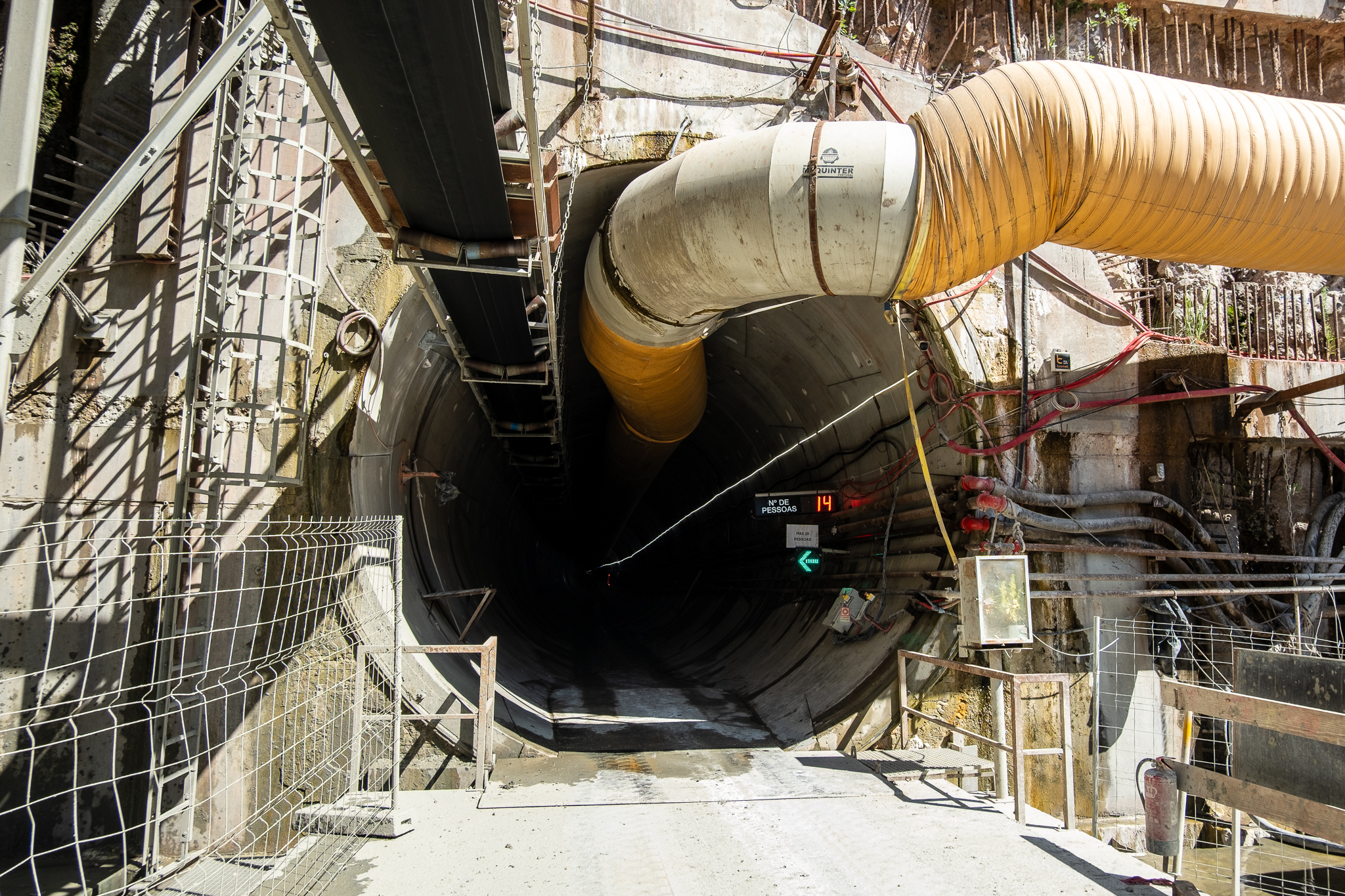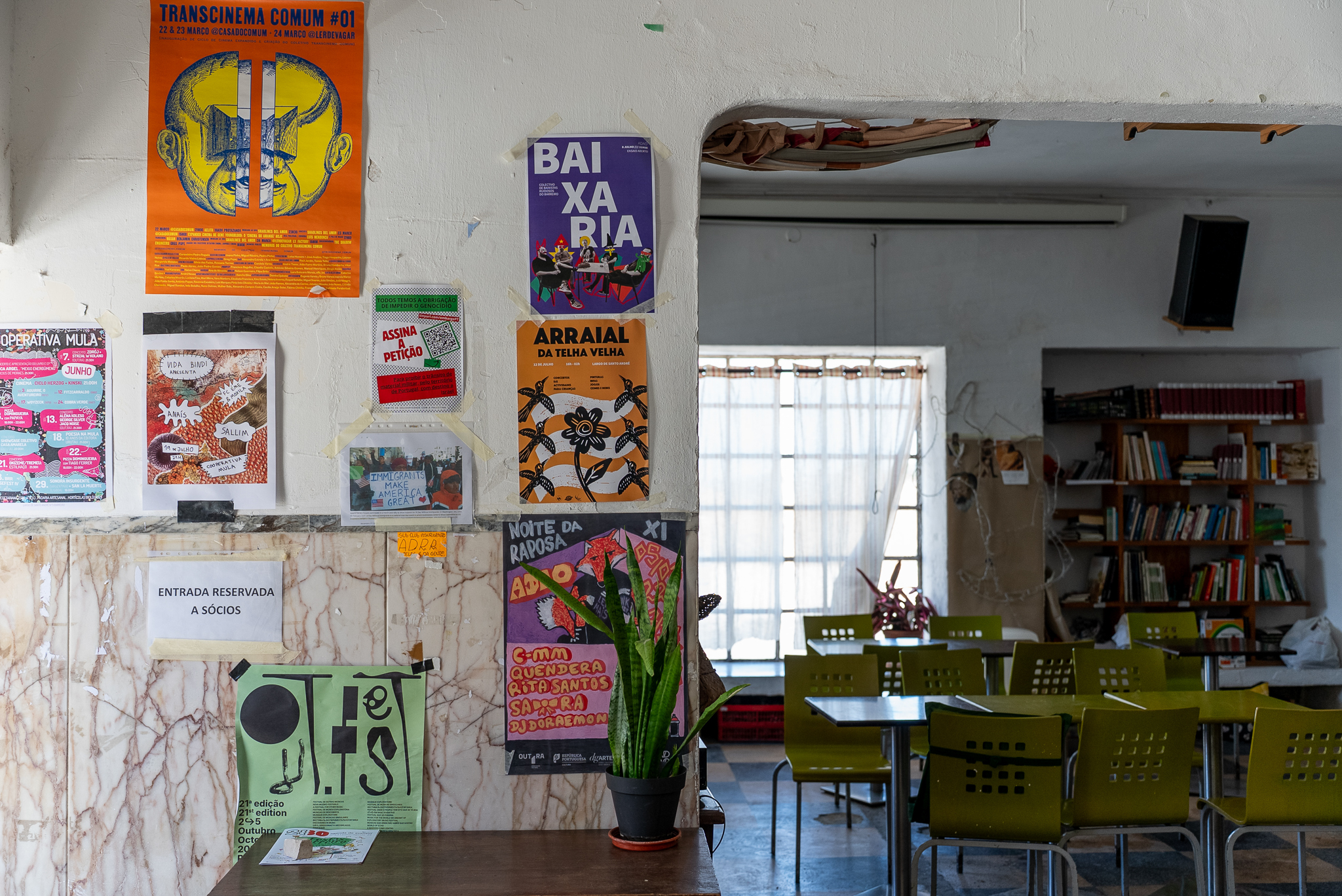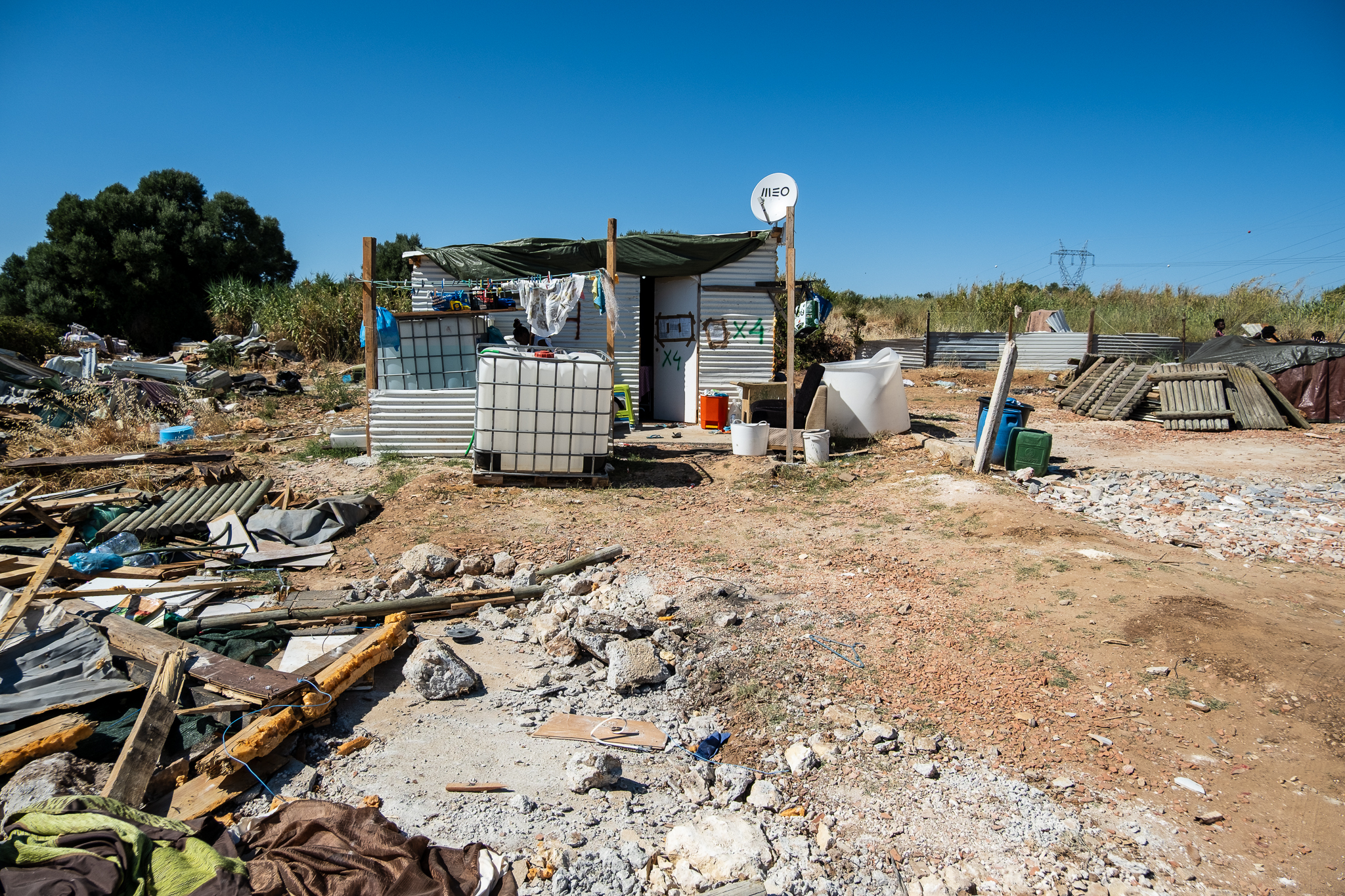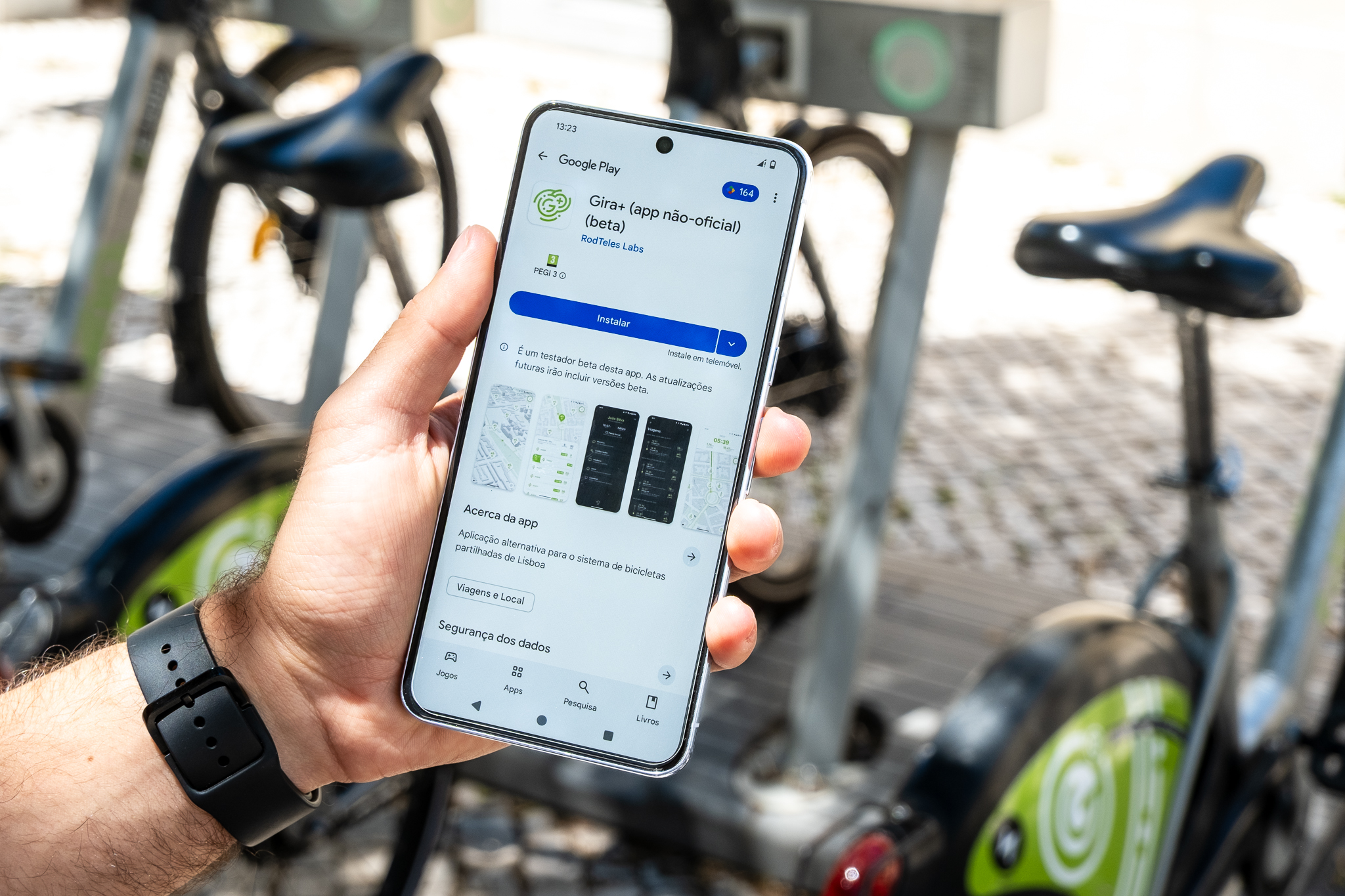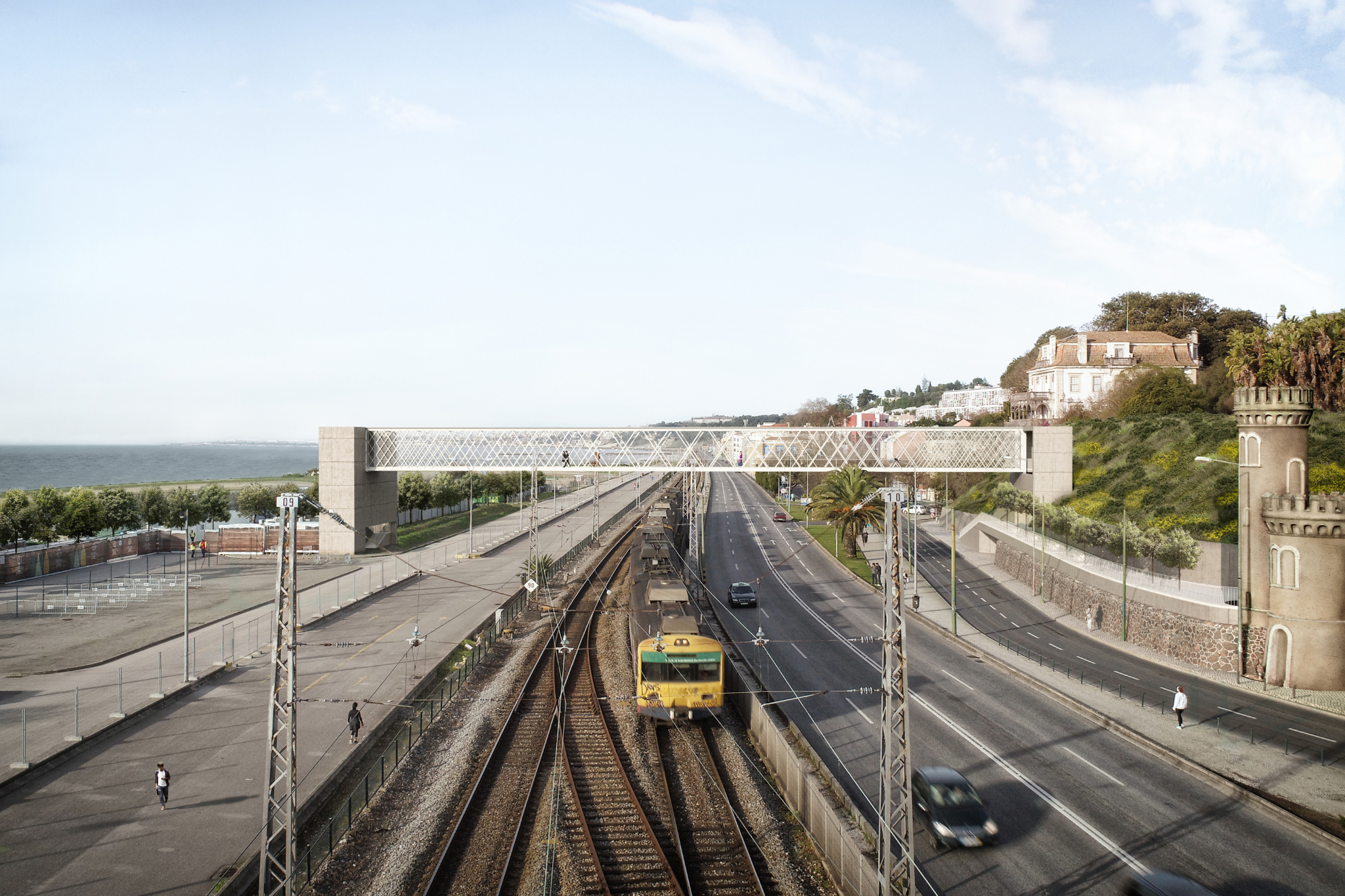Carlos Moedas promised 20 free minutes of parking and 50% discount on the following minutes for those living in Lisbon. Measure may compromise city and country goals for 2025 and 2030.
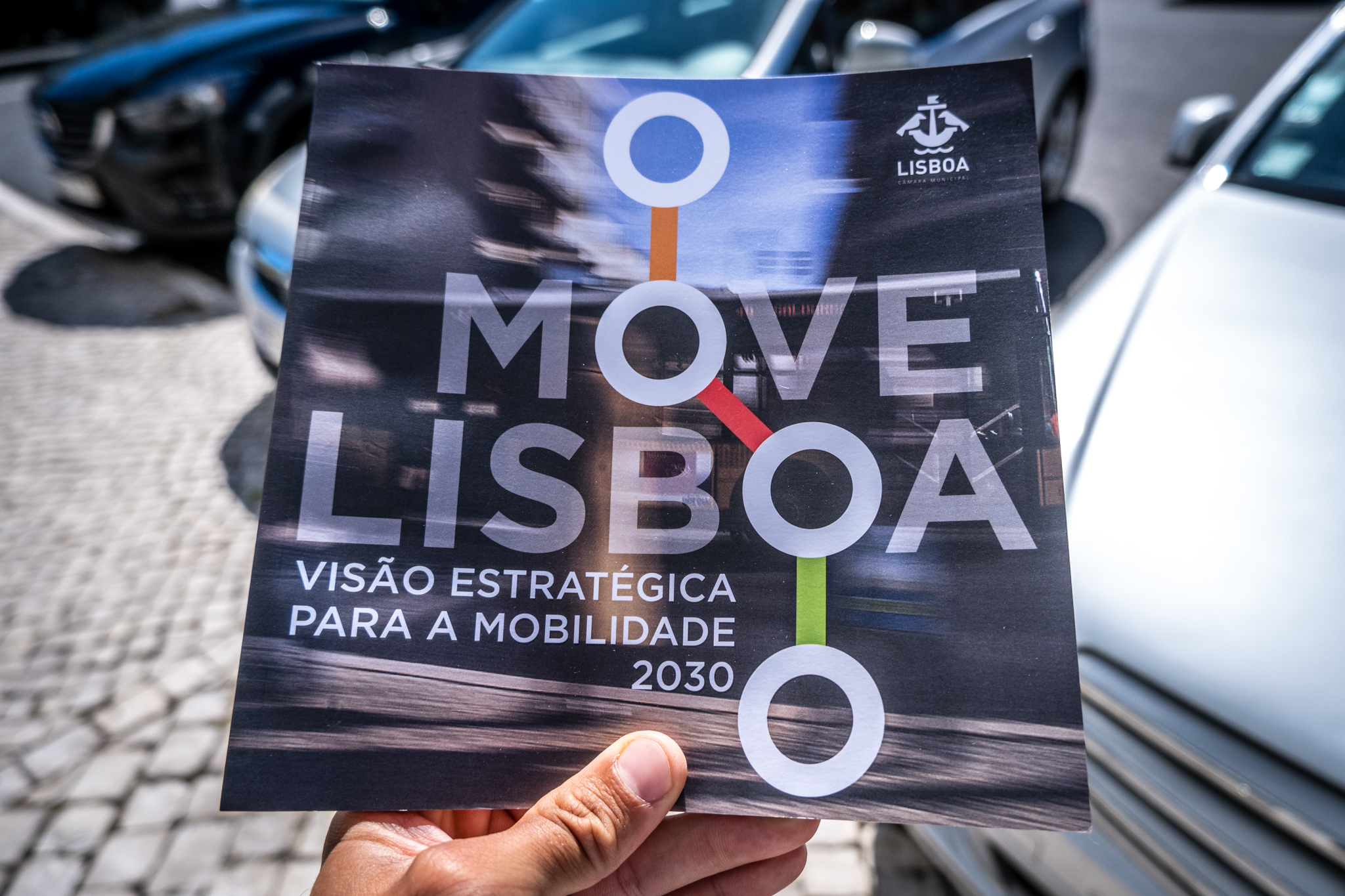
Among the proposals in Carlos Moedas' electoral program There are several ideas to encourage cycling, pedestrian mobility and the use of public transport, but one measure in particular could rival the goal of reducing car journeys in the city by a third: offer those who live in the city 20 free minutes of parking per day and 50% discounts on all EMEL tariffs during the remaining periods.
According to the MOVE Lisboa - Strategic Vision for Mobility 2030The document was approved by a majority during Medina's term in office, which is now coming to an end. capital aims to reduce the number of car journeys to 34% and increase the modal share of so-called "green mobility" (walking, cycling and public transport). With the car accounting for 46% in the city in 2017 (INE), this ambition represents a reduction of 28% of the cars currently circulating in the Portuguese capital. O MOVE Lisbon also establishes a tripling of the number of journeys made by bicycle by 2025.
However, the Moedas' promises of 20 minutes of free parking for those who live in the city and a discount of 50% for the following minutes are an incentive to use the car in the city and could be detrimental to meeting the quotas set for 2030.. Mário Alves, a civil engineer and specialist in the field of transport and mobility, says so: "Reducing the hourly rate for residents exacerbates car use within the city, with all the negative consequences that entails. Short trips within Lisbon and seat rotations of less than 20 minutes increase congestion, pollution (with frequent ignitions) and expose active modes to more danger."
"It could even increase parking demand traffic, by increasing the desire to park on the part of Lisboetas, in competition with visitors to the city, in a context of a supply that will always be limited and scarce"he adds, recalling other measures to encourage car use carried out by previous city councils, including Fernando Medina's, such as the free first EMEL ticket for families with more than one car or the increasing the number of parking spaces in the city. "Parking control and management is one of the most effective ways to reduce car ownership and use in the city", understands.
A City Mobility Strategy Vision for 2030or MOVE Lisbonwas a document approved at a City Council meeting at the end of 2019 with a majority of 11 councillors, including the favorable vote of the two PSD councillors. The CDS, with its four councillors, voted against, alongside the PCP. From the town hall meeting MOVE Lisbon went to the Municipal AssemblyIt was debated and voted on in January 2020: here, the PSD had already abstained along with the PAN; the CDS again voted against alongside the PCP and also the PPM. In addition to the PS and BE, the MPT voted in favor, along with the PSD, CDS, Aliança and PPM. coalition New Times of Carlos Moedas, winner of the September 26th elections.
PSD agreed with the MOVE Lisbon, CDS endorsed "some good intentions"
From the minutes of the town hall meeting, which can be consulted below, it can be read that the MOVE Lisbon had the prior input of the various parties through private meetings with the Lisbon City Council's mobility team. João Pedro Costa, a PSD councillor, said at the same town hall meeting that the document appeared to the party "relatively consensual" and that it would be important "can last beyond the terms of the city council, and the parties that lead the Lisbon City Council". "Where there will then be doubts and possibly some differences will be in the way the various measures are implemented, but we will be here afterwards to actively and constructively discuss them, as we have been doing"added the Social Democrat councillor.
João Gonçalves Pereira, CDS councillor, explained that the document "it sets out some good intentions, which we support and endorse"but the "various reservations" that the party raised - such as the lack of a vision for mobility that covers the entire Lisbon metropolitan context, the failure to integrate the expansion of the Lisbon Metro into the strategy or the not contemplating the electric car as "soft mode" mobility (from a CDS perspective) - led to the vote against. The PCP, in the voice of councillor Jorge Alves, claimed that the MOVE Lisbonalthough it contains "a set of generic and comprehensive intentions, and the PCP does not disagree with most of the general principles mentioned"the strategic vision expressed in this document does not consider the "present situation" of the city of Lisbon and can "not being understood by citizens who will tend to see this moment as out of touch with reality and the problems they experience on a daily basis".
Miguel Gaspar, the PS councillor with the mobility portfolio at the time, was pleased, after listening to his colleagues on the executive, with the "concordance" between PS, PSD and BE in relation to a strategic vision for the future of mobility in Lisbon and in the effort to reach a "agreement on the principles so that there is some stability of policies"which last beyond the four-year terms that "we all have to deliver".
Strategic vision to bring political stability to the city
O MOVE Lisbon is published on the municipality's website and can be consulted at the end of this article; there is also a printed version that has been distributed in some places, such as recently at the Velo-city conference. The existence of a strategic vision such as the one structured in the MOVE Lisbon is crucial to building consensus in the cityas Mário Alves explained in a conversation with Lisboa Para Pessoas over the summer. "Lisbon may be the only European capital that doesn't have a mobility plan"said in July. A mobility plan would describe a vision in which one imagines "with the people the future, how we would like our city to be". This view, "which may even be utopian and optimistic"It allows us to trace a political path and define measures to get there, as if we were walking towards an endless horizon. "Then it also happens that the vision changes, in 10-15 years we may be getting closer to the vision we had and we become even more ambitious." The vision should be built with civil society, the people, the associations, the centers of neighbors and anyone else who wants to take part.
"This could be symbolic, but if we all sign the document saying that we want zero pollution or almost no pollution in the city, by increasing the number of parking spaces or widening an avenue, we would be contradicting a signed document"Mário said during the conversation. "The vision is easy. Both MUBi and ACP, for example, may agree on the vision, but the measures to get there may not. But one could not go backwards. One could postpone measures - because there is no time horizon. But at least one could not go backwards. You wouldn't be able to put in another track now because that clearly contradicts the document you signed."
Although MOVE Lisbon the document was drawn up with the parties represented on the Lisbon City Council during the last term (PS, CDS, PSD, PCP and BE). did not go through a public consultation process like others. However, it is still a strategic vision that There was a majority consensus among the parties, including the PSD, which supported Carlos Moedas' coalition that won the last municipal race..
PSD and CDS agree to 4% for urban cycling by 2025
O MOVE Lisbon is looking for car journeys in the capital to account for only 34% of total journeys, a reduction of 28% that will be worked on with investments in pedestrian mobility, public transport and also cycling. A National Strategy for Active Cycling Mobility 2020-2030 establishes commitments for cycling by 2025 and 2030. In four years' time, the national ambition is to have a 4% modal share for cycling in cities; the target is 10% by 2030. On a territory-wide level, by 2025 it is expected that 3% of all journeys on national territory will be by bicycle and that, by 2030, this figure will rise to 7.5%.
António Costa's government has been slow to apply the National Strategy for Active Cycling Mobility 2020-2030 (ENMAC 2020-2030), such as associations like MUBi have been denouncing. However, Eduardo Pinheiro, Secretary of State for Mobility, guaranteed earlier this month that the team ENMAC will be increasedA promise he recently reiterated at the ceremony to award the National Bicycle Mobility Award.
The parties with parliamentary seats have, however, been pressuring the government to make this a reality. ENMAC 2020-2030. In February of this year, the PSD and CDS voted alongside the PS, BE, PCP, PAN and PEV to recommend to the government that it schedule and begin to implement the ENMAC by the end of the first quarter of 2021. As early as July 2020, Parliament asked the government to prioritize and accelerate the implementation of the National Strategy by Assembly of the Republic Resolution no. 61/2020which brought together draft resolutions from the PS, PSD, PAN and PEV.

